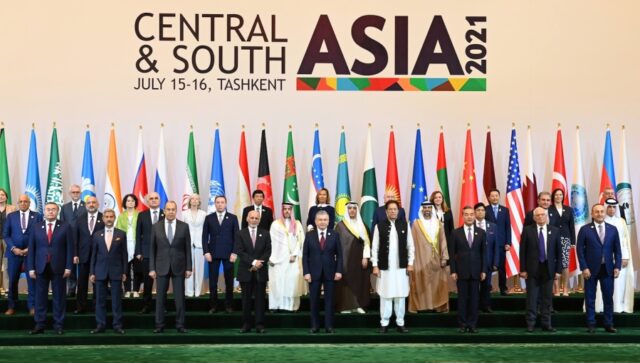The Republic of Uzbekistan, a double-landlocked country in Central Asia, shares borders with Kazakhstan to the west and to the north, Kyrgyzstan and Tajikistan to the east, and Afghanistan and Turkmenistan to the south. The official language of Uzbekistan is Uzbek, and Russian is the language for international communication. Uzbekistan’s capital is Tashkent, and the official currency is the Uzbekistani som (UZS).
The land that is now Uzbekistan was once at the heart of the ancient Silk Road trade route connecting China with the Middle East and Rome. The country spent most of the past 200 years as part of the Russian Empire, and then of the Soviet Union, before emerging as an independent state when Soviet rule ended in 1991.
Under authoritarian President Islam Karimov, who ruled from 1989 until his death in 2016, Uzbekistan was reliant on exports of cotton, gas and gold to maintain its rigid, state-controlled economy. President Karimov’s successor, Shavkat Mirziyoyev, has made efforts to break Uzbekistan out of its international isolation and economic stagnation, but has yet to initiate any serious political liberalisation.
Uzbekistan held a two-day high-level meeting in the capital city of Tashkent on July 15 and 16 to discuss the ‘challenges and opportunities in Uzbekistan‘. 250 participants and 40 delegates from different countries took part in the discussion and the conference was titled “The International Conference on Central and South Asia Regional Connectivity, Challenges and Opportunities”. The conference was an important one as the main purpose was to deepen cooperation between countries from Central Asia and South Asia in trade and energy issues and other brands of cooperation.
The city of Tashkent was decorated with flags and lights ahead of the Central-South Asia Summit. The main goal of the conference was to strengthen trust, good neighbourhood and friendly relations between the states of Central and South Asia. On the part of India the Indian External Affairs Minister, S Jaishankar highlighted India’s role in the top-level conference. He held discussions with representatives of countries from the European Union, Kazakhstan and Afghanistan on the side-lines of the summit.
During the conference there was angry exchange of conversation between Ashraf Ghani and Imran Khan, when the former accused Pakistan behind the rising violence in Afghanistan, as they support the Taliban. This has also led to the cancellation of a conference of Afghan leaders which Islamabad had convened over the weekend. Uzbekistan has also expressed concerns about the war-torn situation in Afghanistan and wishes it to be normalised soon.
According to the Uzbek President Shavkat Mirziyoyez, strengthening ties with neighbours is a top priority for Uzbekistan. There is a need for enhancement of cooperation and coordination among the countries for the development in the region. For better connectivity, Uzbekistan has established a railway route to Afghanistan and is planning to extend the railway line to Pakistan and other countries as well.









